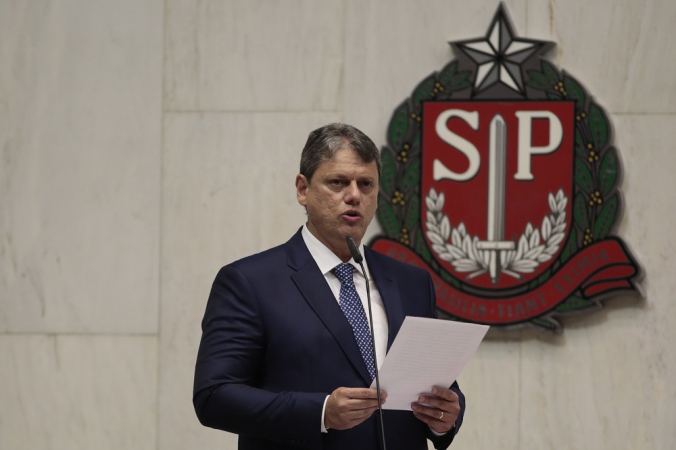The government of São Paulo, under the leadership of Tarcísio de Freitas (Republicans), intends to spread the state’s economic development into the hinterland.
The idea is to form what they call coalitions with businessmen from the 16 regions of the state.
They will map bottlenecks and formulate medium and long-term plans to expand the participation of each region.
The process started in January.

The coalitions and the initial plans are estimated to be ready by September.
“Each region will have a technical director to set and follow up on the goals. It is a determination of governor Tarcísio de Freitas,” Jorge de Lima, São Paulo’s Economic Development secretary, told Poder360.
He was a special advisor to Paulo Guedes in Jair Bolsonaro’s (PL) government.
The regions where the formation of coalitions is more advanced are Ribeirão Preto and Santos.
The 1st represents 2.5% of the state’s GDP. The second represents 2.8%.
In the case of Ribeirão Preto, Lima says that one of the local bottlenecks is the lack of bricklayer manpower.
The state intends to help train this labor force in partnership with local businessmen. One of the medium-term goals is to boost regional tourism around the city, transforming the region into a gastronomy center.

In the case of Santos, the idea is to focus on expanding the export corridor. Lima was in Brasília on Wednesday (Feb.7, 2023) and closed a deal with the Brazil Export Forum.
One of the points is the definition of what to do with the Port of Santos, which Tarcísio wants to privatize, but the federal government does not.
FOCUS ON 5G
The government wants to expand the number of cities with legislation for 5G.
They estimate that it can impact the development of technology hubs and make businesses more agile.
The goal is for many cities to approve municipal legislation to receive the technology.
Today, 77 cities have already approved legislation in the country, 44 of which are in São Paulo. The goal is to have practically all of them.
REINDUSTRIALIZATION
Next week a decree will be published, creating a work group to develop a reindustrialization plan for São Paulo.
It will count with Fiesp (Federation of Industry of the State of São Paulo) and Ciesp (Center of Industries of the State of São Paulo).
The idea is to map out cities’ vocation, focus on energy transition, and increase the added value of products made in the State.
With information from Poder360

